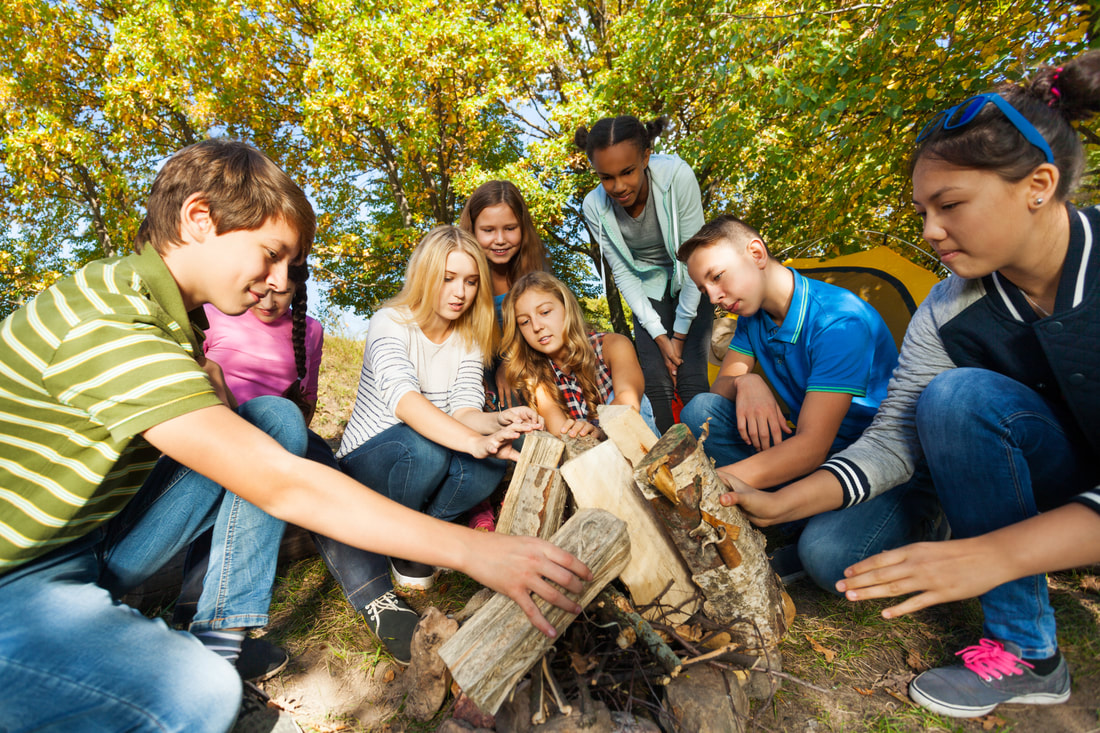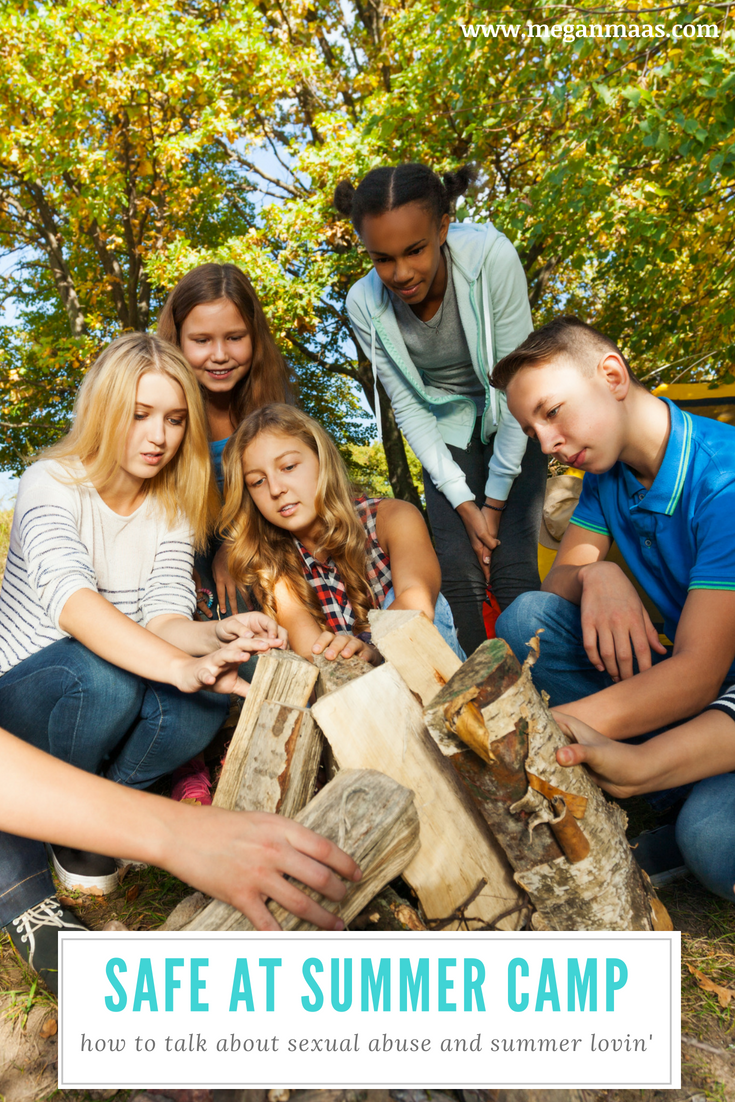|
Copyright: Sergey Novikov/123RF Stock Photo
Summer is here and if you’re like many parents, you have booked summer camps for your kids to attend, so they don’t drive you insane *COUGH*, I mean, so they have a well-balanced summer. Camp can be summed up as new kids + new adults = new social dynamic, so now’s the time to brush up on convos about bodies and boundaries.
I want to start out by saying that the majority of sexual abuse is perpetrated by someone the victim knows well (1), so stranger danger doesn’t quite live up to its reputation. But next up in perpetrator probability are people who your kid knows well but you do not (2). Hence, summer camps! Now, mind you, I’m writing this post as a mom and sex educator, not necessarily as the prevention scientist and professor that I also am because (to my knowledge) there hasn’t been a ton of research on summer camps. But really, summer camp is so fun! I went to them as a kid and send my own kid to them, so I don’t think they are dangerous spaces. But they are spaces for kids to apply their social knowledge and practice their social skills in a new environment. Consider addressing the following:
Chances are, nothing bad will happen to your kid at summer camp. But use this as another opportunity to continue “the talk”. Just like the repetitive act of teaching your kid to share, use the toilet, and put their clothes in the laundry basket, they also need repetition to appreciate how awesome their bodies are, how powerful their voices are, and how in charge of their own lives they are. References: (1) Cromer, L.D. & Goldsmith, R.E. (2010) Child Sexual Abuse Myths: Attitudes, Beliefs, and Individual Differences. Journal of Child Sexual Abuse, 19, 618-647. (2) Colton, M., Roberts, S. & Vanstone, M. (2010) Sexual Abuse by Men Who Work with Children. Journal of Child Sexual Abuse, 19, 345-364 (3) Nickerson, A. B., Aloe, A. M., Livingston, J. A., & Feeley, T. H. (2014). Measurement of the bystander intervention model for bullying and sexual harassment. Journal of Adolescence, 37, 391-400. (4) Lichty, L. F., & Campbell, R. (2012). Targets and witnesses: Middle school students’ sexual harassment experiences. The Journal of Early Adolescence, 32, 414-430. (5) Chein, J., Albert, D., O’Brien, L., Uckert, K., & Steinberg, L. (2011). Peers increase adolescent risk taking by enhancing activity in the brain’s reward circuitry. Developmental Science, 14, 1-10. (6) Pinkleton, B.E., Austin, E.W., Chen, Y. & Cohen, M. (2012) The Role of Media Literacy in Shaping Adolescents' Understanding of and Responses to Sexual Portrayals in Mass Media. Journal of Health Communication, 17, 460-476,
2 Comments
Munhwa Kang
12/4/2018 02:23:53 pm
Giving and sharing Sex education with children is really important because if portend do not teach their children about sex, then they might learn about it from their friends or somewhere else. Children are very curious about their body and sex as they get older, at that time, if parents talk about sex, they will understand more about not only sex but also their body. Many people believe that sexual violence happens at night or from stranger. In fact, no one predicts when and where they will face sexual violence. In addition, most sexual violence such as rape is perpetrated by people around them. Therefore, teaching and discussing with children about sex and how important of their private parts can prevent from unexpected dangerous situation.
Reply
peter
12/11/2023 02:05:31 am
Cool savings await! Come fast to grab these charming huge savings coupons on Pure Taboo ❤️🔥 Membership Plans also, you can claim free 15 minutes on attractive vods and scenes. <a href=" https://coupondonor.com/coupons/puretaboo ">Pure Taboo coupon code</a>
Reply
Leave a Reply. |
About this Blog:I'm here to help us discuss sexuality, gender, and media by integrating information from academic and mainstream sources. I hope this resource produces more sexually competent people who raise sexually competent kids. Categories
All
|


